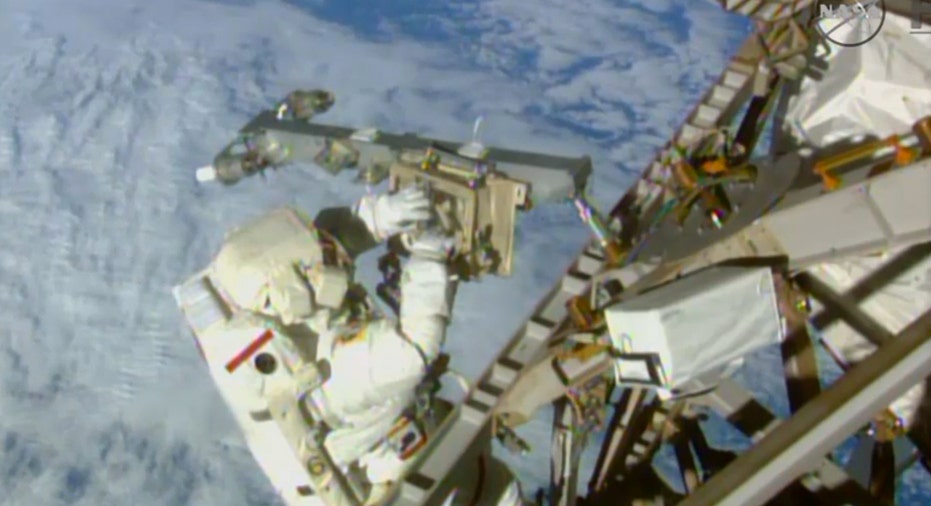Thiel, Others Push for Trump NASA Team Expansion

Venture capitalist Peter Thiel and others have successfully pushed for advocates of commercial space ventures to join President-elect Donald Trump’s NASA transition team, a result of an internal tug of war over policy directions and future decision makers at the agency.
Transition leaders are poised to tap Alan Stern, chairman of the Commercial Spaceflight Federation, a leading trade group, and Alan Lindenmoyer, a former head of NASA’s commercial space taxi program, to serve on the agency’s so-called landing team, according to people familiar with the matter.
Consultant Charles Miller, another ex-NASA official who championed commercial space programs over the years, also is slated to be appointed to the same panel, they said.
The appointments, which are expected to be announced shortly, partly reflect Mr. Thiel’s influence, the people said. The billionaire investor, who is Mr. Trump’s most prominent Silicon Valley supporter, is among more than two dozen people on the executive council overseeing the governmentwide transition.
Along with former House Speaker Newt Gingrich and former Republican Congressman Robert Walker—two other champions of commercial space endeavors—Mr. Thiel has argued forcefully inside the transition that the original team sent to the National Aeronautics and Space Administration was skewed toward appointees closely identified with legacy space projects run by Boeing Co. and Lockheed Martin Corp., the people said.
Most of the existing appointees support projects in Alabama championed by Sen. Jeff Sessions (R., Ala.), Mr. Trump’s pick for attorney general, according to industry officials. Mr. Sessions has played an outsize role shaping the president-elect’s transition effort when it comes to space programs. Transition officials declined to comment on that issue.
To a large extent, Mr. Thiel was passing on similar complaints he received from prominent space entrepreneurs including Elon Musk, who runs Space Exploration Technologies Corp., and Amazon.com Inc. founder and Chief Executive Jeff Bezos, who also heads the commercial space venture Blue Origin LLC, people familiar with the matter said. Some of the grousing made its way to Vice President-elect Mike Pence, who is expected to be the primary decision maker on space issues.
A spokesman for Mr. Bezos had no immediate comment. A spokesman for Mr. Musk declined to comment.
The names of the new members are going through final vetting and could change, people familiar with the matter said. All of the appointees favor the type of private-public partnerships exemplified by Mr. Musk’s SpaceX.
Mr. Thiel’s support for an expanded NASA team has been criticized by legacy aerospace contractors, according to people familiar with the matter. These critics have complained in conversations with transition officials and others that Messrs. Thiel and Musk, longtime friends and business associates, are working together for their own financial benefit, these people said.
Founders Fund, one of Mr. Thiel’s companies, was an early and significant investor in SpaceX. As a result, these critics argue that Mr. Thiel stands to personally gain from enhanced federal support of commercially run space programs at SpaceX.
Transition press officials didn’t respond to emails seeking comment. Two people familiar with the details said Mr. Thiel never advocated on behalf of specific individuals or companies.
Mr. Musk spent roughly $100 million of his own fortune to start SpaceX, which over the past eight years has garnered NASA contracts valued at more than $6.5 billion to deliver cargo—and eventually U.S. astronauts—to the international space station. The company continues to press for Pentagon launch contracts that could amount to many hundreds of millions of dollars through the end of the decade.
Persistent friction between legacy aerospace contractors such as Boeing and “new space,” as proponents of commercial space exploration often call themselves, is one of the fundamental dynamics roiling the aerospace world.
For now, the clash inside Trump transition headquarters is largely symbolic because the makeup of the team won’t necessarily determine how NASA operates under a Trump administration. But transition personnel can exert influence over some areas; in some cases they stay on as decision makers or help recruit others, and they are widely perceived inside and outside the industry as bellwethers of priorities that may emerge.
Mr. Trump and his top aides haven’t talked publicly about their plans for NASA. But starting weeks ago, Mr. Gingrich complained directly to Mr. Trump, Mr. Pence and incoming White House chief of staff Reince Priebus about the lack of pro-commercial space advocates on the initial team, according to people involved in the process. Mr. Thiel also raised the general issue with Mr. Pence, according to some of these people.
Prospective names were circulating inside transition offices well before last week’s meeting in New York between Silicon Valley business leaders and Mr. Trump. As part of that initiative, according to people familiar with the matter, Mr. Musk had a separate chat with the president-elect to stress the importance of maintaining and growing private-public partnerships to blast humans beyond the atmosphere.
The meeting went well and Mr. Trump appeared to be “very receptive to the concepts” laid out by the SpaceX chief, according to a veteran space expert who was briefed about the session.



















